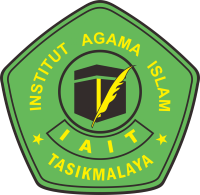The Meaning of Islamic Educational Institutions
DOI:
https://doi.org/10.61166/kasyafa.v2i1.16Keywords:
Islamic education, History of Islamic Educational InstitutionsAbstract
Islamic educational institutions have an important role in shaping the character and morals of the younger generation. Islamic education, known as tarbiyah, focuses on the development of individual potential both intellectually and spiritually. This aims to create a society that is not only academically intelligent but also has high morals. Islamic education has a deep philosophical foundation, covering aspects of ontology, epistemology and axiology. In this context, education is not only seen as a process of transferring knowledge, but also as an effort to instill moral and ethical values in accordance with Islamic teachings. The history of Islamic education began from the time of the Prophet Muhammad to the present, with significant developments in methods, materials, and places of education. In the modern period, Islamic education began to integrate general knowledge with religious teachings to prepare the younger generation to face global challenges. In facing the challenges of modernization and globalization, Islamic education must be able to adapt without losing its identity. The integration of religious values and knowledge is the key to creating a strong and characterful generation.
References
Samsul Nizar (Ed.), Sejarah Pendidikan Islam: Menelusuri Jejak Sejarah Pendidikan Era Rasulullah sampai Indonesia, Jakarta: Kencana Prenada Media Group, 2008.
Muslim A. Djalil, Meunasah sebagai Lembaga Pendidikan Tradisional Islam di Aceh (Artikel).
Ismi Adelia dan Oki Mitra, "Permasalahan Pendidikan Islam di Lembaga Pendidikan Madrasah," Jurnal Islamika: Jurnal Ilmu-Ilmu Keislaman, vol. 21, no. 01, Juli 2021, hal. 32-45.
Juwari, "Sejarah Pendidikan Islam dari Klasik, Pertengahan, dan Modern," Taklimuna: Journal of Education and Teaching, vol. 1, no. 2, 2022.
Abdul Basyit, "Perkembangan Pendidikan Islam di Indonesia," Rausyan Fikr, vol. 14, no. 1, Maret 2018, hal. 155-168.
Mudzakir, A.M.d.j., 2008. Ilmu Pendidikan Islam. Jakarta:Kencana
Ali Khan, Shafique. (2015). Filsafat Pendidikan Al-Ghazali . Bandung: Pustaka Setia.
Muhammad Seperti Katanya. (2011). Filsafat Pendidikan Islam . Yogyakarta: Mitra Pustaka.Integrasi Kurikulum
Arifin, M. (1991). Ilmu Pendidikan Islam . Jakarta: Bumi Aksara Pers.
Langgulung, H. (1995). Manusia dan Pendidikan: Suatu Analisis Psikologis dan Pendidikan . Jakarta: al-Husna.
Abdullah, M. Amin. (1995). Studi Agama: Normativitas atau Historisitas? Yogyakarta: Pustaka Pelajar.
Abdullah, M. Amin. (2007). Islamic Studies di Perguruan Tinggi: Pendekatan Integratif-Interkonektif. Yogyakarta: Pustaka Pelajar.
Suprayogo, Imam. Metodologi Penelitian Sosial-Agama. Bandung: Rosda Karya, 2001.
Suprayogo, Imam. Paradigma Pendidikan Islam. Malang: UIN Malang Press, 2009.
Downloads
Published
How to Cite
Issue
Section
License
Copyright (c) 2025 Maspuroh, Tita Sumiati, Mohammad Nabiel Hadie Alfan, Nuri Handayani, Sahrul Ramadhan

This work is licensed under a Creative Commons Attribution 4.0 International License.












